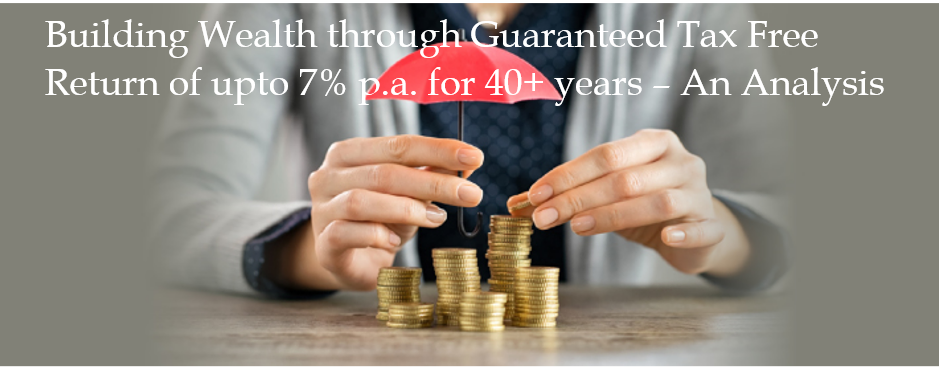
 Post Budget, the Insurance industry is buzzing with Guaranteed Products as the budget 2023 put a cap on the exempted traditional plan of premium over Rs. 5L from April 1, 2023. The Insurance industry, agents, banks are selling these products as “Once In A Lifetime Opportunity” to HNI businessmen and professionals.
Post Budget, the Insurance industry is buzzing with Guaranteed Products as the budget 2023 put a cap on the exempted traditional plan of premium over Rs. 5L from April 1, 2023. The Insurance industry, agents, banks are selling these products as “Once In A Lifetime Opportunity” to HNI businessmen and professionals.
I have analyzed 100+ plans and options of all major insurance companies like HDFC Sanchay Plus, ICICI GIFT (Guaranteed Income For Tomorrow), Tata Fortune Guarantee Plus, Bajaj Assured Wealth Goal, Kotak Guaranteed Fortune Builder, Max SWAG (Smart Wealth Advantage Guarantee) Long Term Wealth etc.
Also, while all these plans promise to build wealth or fortunes, lets understand whether they will really help create wealth? If yes, for which type of investors?
Advantages:
The biggest advantage is Guaranteed Tax Free IRR of up to 7% for 40+ years without limit
The return on these products (IRR) varies from 5.03% to 7.07% depending upon policy term, premium paying term, amount of annual payout, return of premium at year end, name of company, insurance coverage, and multiple other factors.
The return above 6.8% is available only for premium paying term of 10+ years, policy term of 35+ years, and repayment of premium at maturity.
In short, the investor gets
- Tax Free return of up to 7% p.a.
- Guaranteed Return
- For a Very Long term of 35-45 years
- By AAA rated Insurance Companies regulated by IRDA
So, it has everything…..Safety, Security, Guarantee, Longevity, High Return, No Tax. What else an investor can ever want? Nothing. Right?
Important Considerations
A smart investor is the one who learns what the agents of such products does not say and makes decision after analyzing all the factors. Following are the 7 important factors to consider before making the decision:
- Return vs IRR: The 7% guaranteed return is not a return but IRR. You have to pay premium for 12 years, take a break for about 1-2 years and start getting money only from the 14th year. And, a big chunk (principal amount) is received only in the last year. Also, the GST on premiums also negatively affect the IRR.
- Policy Term: IRR of 7% can be generated only if policy is kept active for 40+ years. For terms lower than 30 years, the IRR comes down to 5.05-6.50%.
- Flexibility: By investing in this product, the investor is addressing only one unknown – after tax % return. For that, he is giving up the flexibility to address future challenges or changes in requirements, situation, circumstances, tax laws, etc., which play a big role in anyone’s life. The investor has NO flexibility for 40+ years – can’t change, update, or alter the policy term but can only surrender.
- Surrender: If the policy is not held until maturity, it can only be surrendered and the surrender value is very very less. Historically, majority of policies are surrendered before maturity and the investor would be fortunate if they recover even premium paid amount.
- Money - A means to an End: Money is not an end. Having money in bank account or tied up in an investment plan serves no purpose. Money is a means to an end. It gives freedom and is an expression of love – to yourself, family, friend or society. It needs to be expressed and not confined. What is the point of money if you don’t have flexibility to use it when you want it, the way you want it.
- Opportunity Cost: Investment horizon of 40+ years is a VERY VERY long time. And, even 1% higher return has multiplier effect over such a long term. Investment of 10L with 7% return would become 1.71 cr. after 42 years. There are other investment options available which will be missed if investment is made in these plans. And, if the return can be increased to 8%, the value would be 2.53 cr. (1.48x). If the return is increased to 10%, which is possible, the value would be 5.48 cr. (3.2x). This is how wealth is built or fortune is created.
- Wealth Building OR Wealth Preservation: With official inflation of about 4-6% and lifestyle inflation higher than 7%, investors can’t build wealth where investment can't generate return higher than inflation. However, these plans may be one of various investment options to help investors preserve the wealth.
Good Investment for Who:
We believe “Every Investment is a good investment. The Key is to find out whether it is a good investment for YOU? “
Guaranteed plans can be a great investment to investors if ALL of the following conditions are satisfied:
- Investor is in the highest tax bracket (30%+)
- Investor can invest and does not need money or income for next 10+ years
- Investor does not anticipate any large fund requirement for 20+ years
- Investor does not want to invest in mutual funds or equity or stock market
- Investor invests his savings in bank FDs only and wants to move FD funds to other product
Even, any one of the above conditions is not satisfied, it may not be a good investment. If an investor is not in highest tax bracket or can't contribute for 5-10 years or needs regular income or okay with investing in a mutual fund, this is not a good investment.
Is this a Good Investment for NRIs?:
While income from these insurance plans is tax free in INDIA as per Indian tax laws, it may not be exempt and NRIs may have to pay tax in their home country. Also, NRIs can earn tax free return on their NRE and FCNR bank deposits while keeping flexibility for use of funds. As a result, generally, these plans are not advisable for NRIs.
However, if an NRI is permanently moving back to India and he is not going to be a tax resident of any country other than India, these plans may be explored provided he meets all the conditions mentioned above.
Our view:
Personally, we believe that these investments would not create wealth for the investor. It may help preserve the wealth, if held until maturity.
However, investment in this or any other investment product should be analyzed not only based on investment features, but also how it interacts with your other investments, affects overall wealth and its role in achieving YOUR life goals.
Investing in these plans is a long term commitment, materially affecting your wealth building journey. Please consult an advisor who can help you select better investment options.
There may be other considerations for someone to suggest a particular plan or product. If you or someone you know is planning to invest and have any question about whether, which plan, which option, which company, which term is best for your needs, let us know.
After analyzing 100+ policies, plans and options of various companies, we can help you make an informed decision considering YOUR requirements.
Best wishes for your Wealth Management Journey!!!
Jigar Patel, CFA (USA), MBA-Finance (USA), CA
+91 90999 42563




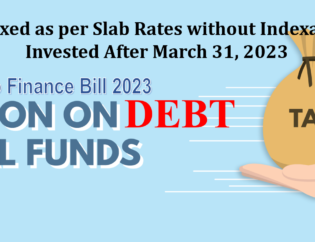
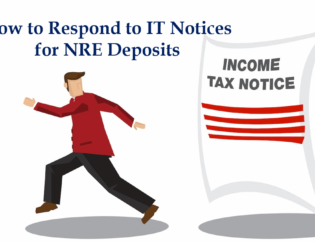
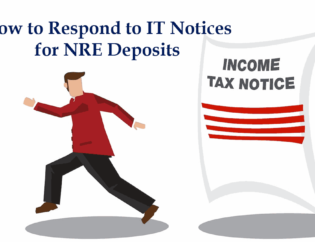
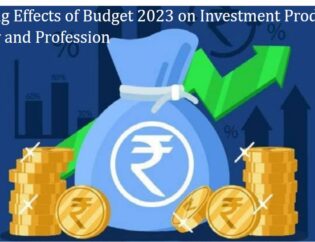
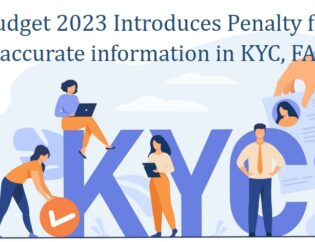

An NRI should also consider possible change of Rupees value against his / hers country where he is going to spend the invested money. Historically the depreciation of rupees have reduced the investment return when analyzing in.the foreign currency !!
Yes. The rupee depreciation or currency risk is always there when the funds are in India. The blog was related to investments of funds already in India for which the currency risk already there. Thanks for your comment.
Thank you for providing insight on alternative investment.
Article is well written covering important aspects of the future investment for NRIs
Thank you
Excellent Article. Deep dive into goals and means of money. Very good way of expressing thoughts.
—————————————————————
Would love to get advice for myself.
For the foreseeable future, I do not trust US stock market very much. So I do not want to invest in mutual funds and ETFs. This decision might prove wrong in future.
I want to have some fixed income of Rs. 30000 per month from my investments in US/ India. I am going to be in India for 1 to 2 years and set up a business. will go to US but for business related work only. I want to generate monthly income to meet some fixed expenses.
I am ready to Invest @50 lacs.
I am 49 and have good health but still i am not interested in any investments which assumes me taking the money after the age of 75. Preferably i want all maturity to happen after 15 years.
so I am considering SBI life Platina Plus to invest 5 lacs per year for 10 years and get all maturity on 16th year. let me know your thoughts.
At this stage 6.5 % or 7% , does not make a difference to me. I am ok with 6.5%
I am open to invest in Indian MF & ETF however in past, when i made that decision, it proved wrong as dollar became much stronger and 52 rupees vs. 80 rupees could not balance any ROI made here in stock. so a bit skeptical. But still would love to hear from you.
You must have read about stimulus, inflation and interest rates. Your observation on below would be good to know. :
US has been consistently wrong about inflation now for more than 3 years. Increasing interest rate – the only formula should not work unless they work on absorbing the unprecedented stimulus they pushed into market during covid. They are not addressing that part at all. If the decisions are made as per the economics principle, the correction should have much earlier and much deeper.
They have inflated economy as a means to being the leader. And no one will challenge them due to their supremacy in areas like weapons.
I think you mightl also do way better if you set up a US address office in California. A US address might get you much more customers than today. Lets touch base on that too , alongwith your tax office there.
Thank you for your comments and nice words. I do not recommend any insurance plans for US residents as they are not taxfree in USA and there is a currency depreciation of 3-4% p.a. especially when the FCNR deposits are giving 5%+ return in USD. Also, Mutual fund investment may not be advisable to you due to PFIC regulation or compliance. Please contact us at jigar@neuronwealth.com for any investment advice. Thanks.